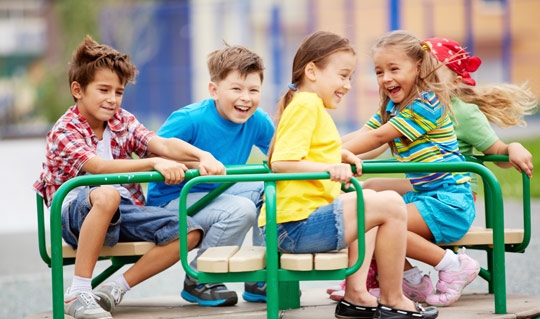How SCT Helps Children with Social Language Disorder

Social language develops from birth. We observe and respond to our environment, learning the social rules of our culture over time. Social language is an intuitive process and we typically take it for granted. But for children with a social language disorder, it is confusing and overwhelming.
What is Social Language?
Social language is a combination of social interactions, social cognition, pragmatics, and language processing. Social language is how we use our language to communicate and adapt to different situations. An individual with a Social Language Disorder may have age appropriate speech and language skills, yet have difficulty when it comes to using their language appropriately in conversations with others. A complete overview of the components that make up social communication can be found here.
Social interactions includes skills such as:
- Politeness
- Conflict resolution
- Accessing peer groups
- Cooperative play
Social cognition includes skills such as:
- Understanding of emotional states of self and others
- Emotional regulation
- Organization and planning
- Attention
- Problem solving
Pragmatics includes skills such as:
- Using language for different purposes (greeting, requesting, commenting, responding, etc.)
- Following conversational and interpersonal rules, such as:
- Taking turns in a conversation
- Initiate and respond in social situations
- Staying on topic
- Reading verbal and non-verbal signals
- Using appropriate eye contact and facial expressions
- Maintaining appropriate distance between yourself and another person
Language processing includes skills such as:
- Comprehension of spoken and written language
- Phonological skills for spelling and reading
- Sequencing word order
SCT’s Approach to Social Language Learning
At Sammamish Children’s Therapy, children with social language disorders may be seen individually, in a peer social group setting, in a friendship pair, or a combination of these settings.
Much of SCT’s approach to working with children who have social language delays builds on the work of Michelle Winner Garcia, who has developed an insightful curriculum for working on social skills across a variety of ages and abilities. SCT takes a child’s individual strengths and challenges into account to develop a program that meets the needs of the individual child and family.
Our therapists are specially trained to help children with their social language skills. Our dynamic approach to treatment means that we are always evaluating and adjusting for each child’s development, making sure that their goals are current and relevant.
Families of children in our social groups have reported increased appropriate interactions with peers. Our children demonstrate an increase in self-monitoring and regulating behaviors. Parents frequently comment on their child’s increased flexibility in play and ability to access and interact in peer groups.
Helping our children master social language reduces their anxiety around peer interactions and lets them play successfully and happily with their friends.
How Are Treatment Goals Determined?
During the evaluation process, the therapists at SCT will look at how your child is using their social skills to adapt to varying communicative situations.
Treatment goals are determined based on the skills and needs of the individual child. Information is collected from caregivers, standardized tests, and clinical observation. Specific goals are targeted using the information collected and a method that derives from the Cascade of Social Functioning (more on this here).
By combining this information, our therapists are able to target which areas a child is competent in and build off of those skills to focus on the areas of need.
FAQs
Is Social Language Disorder associated with other disorders?
Social language disorders can occur in isolation or with other conditions. Some commonly associated conditions include, Autism Spectrum Disorder (ASD), Traumatic Brain Injury (TBI), and Attention Deficit Hyperactivity Disorder (ADHD).
How do I know if I should seek help?
If you child seems to have a lack of interest in or difficulty with interactions with others consult your pediatrician to see if a social language evaluation is warranted.
A social communication development chart by age can be found here.
Does insurance cover Social Language therapy?
If your insurance covers speech therapy, it should cover Social Language therapy as well. Check with your insurance for details on your specific plan.
About the Author

Lisa has worked with kids since her days in college coaching gymnastics for children 3-13. Lisa is stimulated by watching children learn and succeed “their inner light shines so bright” she says, and it's this passion that serves as the foundation of SCT's mission to support and enrich the lives of children.
Lisa's therapy focuses on a child's specific needs and personality; a strategy that makes therapy feel more like play and less like work. Her specialties include autism spectrum disorders and advanced training in early speech and language development. Her training and experience with children birth to three years gives her a deep understanding of how to help children at any age. When Lisa founded SCT, she made training in birth to 3 years a requirement for all therapists as part of her effort to provide the best therapy possible for every child.
At home, Lisa has had the opportunity to guide the development of her own children – ages 17, 15, and 3. She finds relaxation in physical activities like running and rock climbing. This summer Lisa's oldest daughter will join her “on the rock” for the first time.